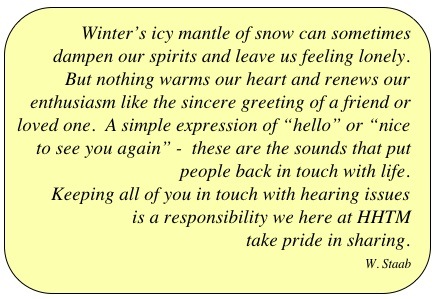Everybody needs a break, even bloggers and those who read them. The lazy days of summer call for beach reads, not blogs. Writers like Carl Hiassen–himself a prolific columnist for the Miami Herald— know this and churn out hilarious, diverting books for the beach.
Mr. Hiassen writes darkly comedic crime novels in which weirdly bad people do weirdly bad things and get their comeuppances in weird ways that usually involve death. As a veteran reporter who’s seen it all, his stories tend toward art imitating real life happenings. My kind of books.
I curled up with Hiassen’s newest contribution, Bad Monkey on the holiday weekend. It’s on the best seller list and getting good critical reviews. Joy turned to rapture as I discovered that the plot centers on the newest, biggest crime wave: Medicare fraud. My kind of book, for sure!
I was not the first healthcare blogger to discover the book, but maybe I can be the first hearing healthcare blogger. Whatever …. here’s an excerpt:
fraud was epidemic…and practically risk-free, thanks to Medicare’s stupendously idiotic policy of paying out claims before asking questions. By the time the FBI zeroed in on a brazen cheat… he would have already shut down his operation, banked a few million and scurried on… resurfac(ing) with a new storefront and a new company logo, working the same easy swindle.
Hearing Economics and Hiassen
Readers of this column may recall previous posts on theft, Medicare fraud as it pertains to Audiologists, and Medicare fraud as a preferred strategic choice for large healthcare groups. Although no Audiologists appear in Hiassen’s latest caper, the Russian Mafia and durable medical goods (fancy motorized scooters) are center stage. A case can be made that the hearing healthcare industry/profession has at least a fighting chance of snagging a feature role in one of his future books. Vestibular “specialists” have been implicated in Medicare fraud, notably “a group of people originally from Russia” fraudulently billing Medicare for vestibular testing.
All that’s required is an unethical physician, preferably addicted to drugs (Hiassen’s current plot) who will sign a ton of referrals daily for 92557 + 92570 on a bunch of folks in nursing homes, on skid row, or in the morgue or cemetary (all of the above in the book’s plot). No need to do the tests, just find a drug or alcohol-addled Audiologist (yes, they do exist) and bill out under his name.
The beach-heated brain goes into overdrive: imagine what you could do if hearing aids were a covered benefit dispensed via Internet? It could happen. If it does, expect Consolidation with a capital “C,” Fraud with a capital “F,” and co-workers with extensive resumes in the drug industry. Sounds like a future summer beach read and a blockbuster film.
 The plot of Bad Monkey underscores the point that it’s a whole lot easier and far more lucrative to steal from the government by selling something that doesn’t exist than it is to sell drugs or work for a corporation and steal real stuff.
The plot of Bad Monkey underscores the point that it’s a whole lot easier and far more lucrative to steal from the government by selling something that doesn’t exist than it is to sell drugs or work for a corporation and steal real stuff.
And the magic of it is that nickel-diming works as well or better than selling non-existent expensive stuff. Once Medicare billing is up and running, billing 1000 tests at $100/ea is as good as billing 100 hearing aids at $1000/ea. If the Government detects fraud, the operation shuts down and moves to a new location. If the perps are caught, the risks are comparatively low:
A Medicare scammer could easily net at least $25,000 a day while risking a relatively modest 10 years in prison if convicted on a single count. A cocaine dealer could take weeks to make that amount while risking up to life in prison.
The Economic Perspective
And some of us Audiologists could probably work a year to take home $25,000 after taxes and servicing student loans, though the prison risk is low. The lure of $25,000/day raises the old Opportunity Costs consideration, as in “What is the next best thing to making $25K a day?“
No doubt, even among exalted professionals such as ourselves, there are some who will take the risk to make/steal the money. As past posts on Utility tell us, the higher the value (in this case of dollars), the more Utility. The more Utility, the more risk is offset. But Utility is about individual choices, not our profession or industry as a whole, which is hurt when individual members make bad choices:
In general, professions are not well served by instances of moral and/or ethical failure. The ripple effects of such failures tend to reach consumers, who react by complaining. Complaints get the attention of agencies, which in turn react by applying scrutiny to the profession. Life gets really rough when Government agencies move from scrutiny to regulations and investigations of the profession and its members. Just ask Tony Soprano, who practically lives with the Feds in his house. He’ll tell you: it’s a lot easier and far more profitable to police your own organization than have the Government step in or, worse, take over.
The Beach Perspective
On the other hand, faced with a day at the beach with a good book versus contemplating the socioeconomic future of our profession, my preferences lie with Carl Hiassen. Have you read Skinny Dip? Very high Utility. As for that blockbuster film, I’m seeing myself as the Audiologist-Vixen-gone-bad, baiting and tempting FBI agents Leonardo Dicaprio and Idris Elba, who stay in close, hot pursuit. What do you think?
photo courtesy of goodereader







Hiassen–always one of my favorites. And, can I have a copy of that list of :…drug or alcohol-addled Audiologist(s)”?
As a good economist, let me just say that the list is available… at a Price.